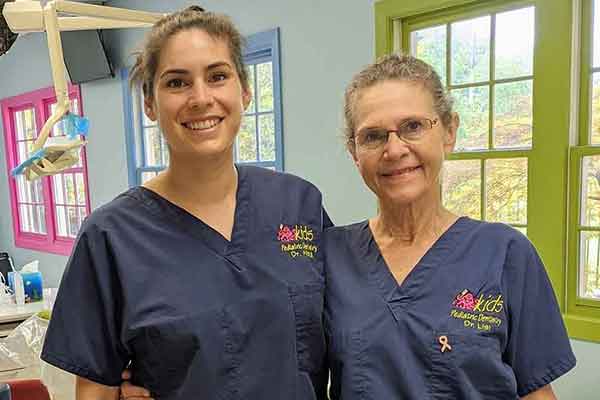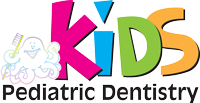
11 Oct Effective Dental Care for kids with Autism Spectrum Disorder
Autism Spectrum Disorder is a complex disorder where the individual may exhibit difficulty with social interactions, intellectual functions, sensory processing, communication, and atypical behaviors. These factors make dental care particularly challenging and favor tooth decay, delay in tooth eruption and serious periodontal problems in autistic kids. Dental injuries are also common due to certain malocclusions and harmful habits like tongue thrusting, lip biting, etc.
Here are a few tips to initiate and improve home dental hygiene routine for kids with such concerns:
- Brushing and Flossing: Introducing a young child to brushing and flossing can be a struggle, especially when they exhibit unusual sensitivity to sounds, bright colors, touch, etc. In such cases try experimenting with different toothbrushes and toothpastes (link to https://www.kidspediatricdentistry.com/what-toothpaste-is-good-for-your-child/). Manual toothbrushes with soft silicon bristles or electric toothbrushes with soft vibrations are usually preferred. Fluoride toothpastes are recommended but discuss fluoride administration with your child’s dentist when in doubt. Utilize the “Tell-Show-Do” approach for kids with communication disabilities. Take time to explain any new procedure and demonstrate the use of new items to encourage cooperation. Do not forget to reward cooperative behavior with positive reinforcement. Using games, videos and other digital activities may make tasks like opening their mouth, allowing for a quick check-up of the teeth, etc. simpler. But for some kids it may be helpful to minimize distractions, especially when they are sensitive to stimuli. Help your child brush and floss their teeth at least twice each day, once in the morning and once before bed.
- Healthy Diet for Healthy Teeth: Often medication cause the mouth to dry and become breeding grounds for cavities-causing bacteria. Good nutrition helps counter some dental issues. Ensure that your child drinks ample water and avoids sugary drinks like carbonated sodas. Also, avoid food rewards in the form of sweets and starchy items such as soft breads and potato chips as they increase susceptibility for dental caries. Choose fruits and vegetables that contain lots of water such as pears, melons, celery and cucumbers instead. Fiber-rich fruits and vegetables and foods with fluoride help fight plaque build-up. Dairy products like cheese, milk, plain yogurt, etc. help restore minerals and rebuild damaged enamel. Gluten-free, casein-free diet is recommended for autistic patients as they typically have a “leaky gut” where large undigested molecules from wheat, rye, barley and casein from dairy products escape into the bloodstream. These tend to have negative effects on brain function and immune system. Consult with a nutritionist for dietary recommendations if your child exhibits digestive and/or behavioral issues.
- Regular Dentists’ Visits: Ensure that regular dental visits are scheduled with the child’s dentist. Although these visits may not be comfortable or easy, a clinic with familiar environments and repetitive routines help kids adjust to dental procedures. Request a desensitization appointment to help the child become familiar with the office and staff. Photos of the dental staff and clinic may help immensely if such appointment is not possible. Let the staff know of any stimuli that may be problematic or helpful in treatment.
Above all, ask the dentist and dental hygienist questions so you can work together to improve the child’s teeth and gums. If you live in the Allen, Texas area and still have questions and concerns on choosing the right toothpaste for your young ones then you may contact our experts pediatric dentists in Allen, Texas.
REFERENCES
